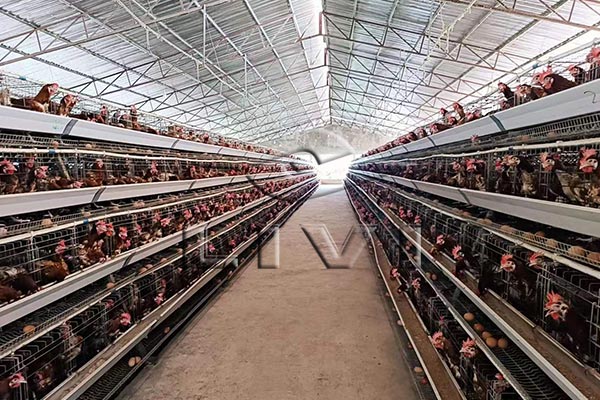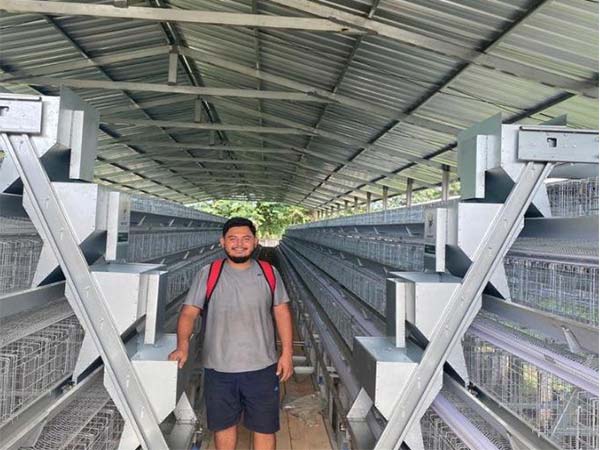Efficient Poultry Farming Battery Cage System in Ghana
In recent years, Ghana has witnessed a significant transformation in its poultry farming industry, with modern practices such as the battery cage system gaining popularity among farmers.
Introduction to Battery Cage Systems in Ghana
Battery cage systems in Ghana represent a modern approach to poultry farming, characterized by housing birds in confined cages designed to optimize space and productivity. Compared to traditional free-range methods, battery cages offer several advantages that appeal to commercial poultry farmers looking to maximize output while minimizing operational costs.
Advantages of Battery Cage Systems
1. Increased Efficiency in Space Utilization
One of the primary advantages of battery cage systems is their efficient use of space. These systems allow farmers to house a larger number of birds within a relatively smaller area compared to traditional methods. This space efficiency not only reduces land requirements but also facilitates easier management and monitoring of poultry health and productivity.
Studies indicate that battery cage systems can increase the stocking density of birds by up to 3 to 4 times compared to free-range systems, without compromising on bird welfare or health standards . This higher density translates into greater production per unit area, making it a compelling choice for poultry farmers aiming to scale their operations efficiently.
2. Enhanced Biosecurity and Disease Control
Biosecurity is a critical consideration in poultry farming, especially in regions like Ghana where disease outbreaks can significantly impact farm productivity. Battery cage systems help mitigate disease risks by limiting direct contact between birds and their environment. The controlled environment of cages reduces the spread of pathogens and parasites, thereby improving overall flock health and reducing the need for extensive antibiotic use.
3. Improved Feed Efficiency and Reduced Waste
Feeding efficiency is another notable benefit of battery cage systems. These systems typically incorporate feeding mechanisms that minimize food wastage and allow precise control over feed distribution. As a result, poultry farmers can optimize feed usage, reduce operational costs, and achieve better growth rates among their flocks.
4. Economic Viability and Long-Term Sustainability
From an economic perspective, the adoption of battery cage systems in Ghana offers promising returns on investment for poultry farmers. Despite initial setup costs, which include investments in infrastructure and equipment such as those provided by leading manufacturers like LIVI Poultry Equipment Manufacturer, the efficiency gains and increased productivity can lead to substantial long-term savings and profitability.
Costs Associated with Battery Cage Systems
While the benefits of battery cage systems are compelling, it is essential for poultry farmers in Ghana to consider the associated costs before making investment decisions:
1. Initial Setup and Infrastructure Investment
Setting up a battery cage system requires significant upfront investment in infrastructure, including purchasing cages, feeders, waterers, and other essential equipment. The initial capital outlay can be substantial, depending on the scale of the operation and the quality of equipment chosen. However, reputable manufacturers like LIVI Poultry Equipment Manufacturer offer durable and cost-effective solutions that ensure long-term reliability and performance.
2. Operational Expenses
Operating a battery cage system involves ongoing expenses related to feed, electricity for lighting and ventilation, labor, and routine maintenance. Poultry farmers must budget for these recurring costs to ensure the continued efficiency and productivity of their operations. Proper management practices, supported by comprehensive training and technical support from suppliers like LIVI, can help minimize operational costs and maximize profitability.
3. Compliance with Regulatory Standards
Adherence to local and international regulatory standards is crucial for poultry farmers using battery cage systems. Compliance requirements may include welfare guidelines for poultry housing, environmental regulations, and food safety protocols. Failure to comply with these standards can result in fines, legal liabilities, and reputational damage. Therefore, farmers must stay informed about regulatory updates and ensure that their operations meet or exceed industry standards.
Conclusion
In conclusion, the adoption of battery cage systems in Ghana represents a transformative opportunity for poultry farmers seeking to enhance efficiency, improve productivity, and achieve long-term sustainability in their operations. While the initial costs and regulatory considerations are important factors to consider, the benefits of increased space utilization, enhanced biosecurity, improved feed efficiency, and economic viability make battery cage systems a compelling choice for modern poultry farming in Ghana.
For farmers interested in exploring reliable and high-quality poultry equipment solutions, LIVI Poultry Equipment Manufacturer stands out as a trusted partner offering innovative products designed to optimize performance and profitability. By leveraging advanced technology and industry expertise, LIVI empowers poultry farmers in Ghana and beyond to achieve their production goals effectively and sustainably.
By embracing the benefits of battery cage systems and partnering with reputable suppliers like LIVI, poultry farmers in Ghana can position themselves for success in a competitive and dynamic agricultural market.


